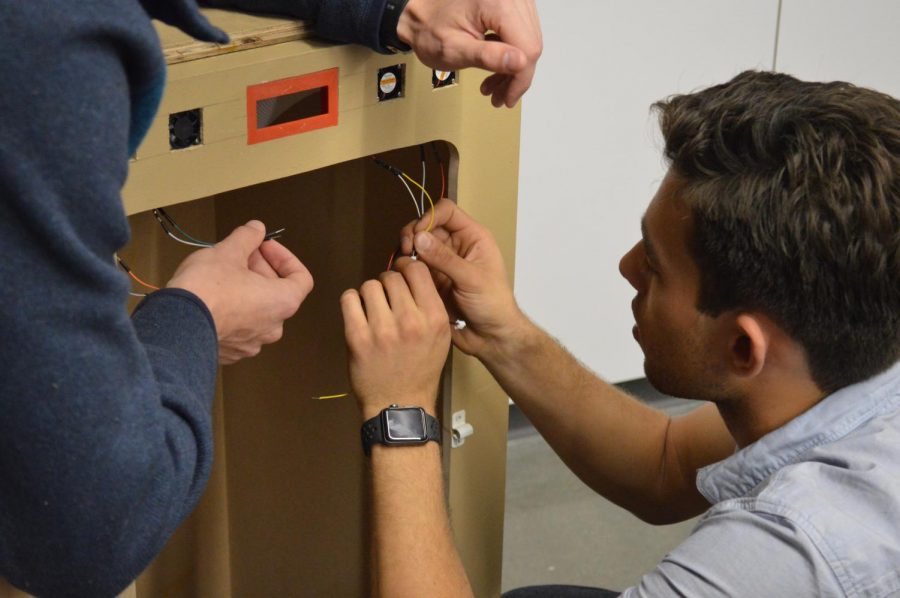(This story was originally published in print on Jan. 23, 2020).
Last semester was marked by financial complications and a budget thousands of dollars less than usual for the Student Government Association. Senators are now left with roughly $18,000 to use on student proposals and commitments. With the budget continuing to shrink due to miscommunication of past administrations and low enrollment, SGA’s team cut $5,150 in unnecessary expenses and event spending this semester.
“In terms of all financial situations, I’m hopeful about the good that an organization can do when they’re faced with hard financial cutbacks,” said president Renee Waller. “For us, it has increased creativity in our team. I’ve seen our finance team think outside the box. I’ve seen my senators rise to the occasion, and some of our most successful and impacting interactions and events have been things that really didn’t involve a lot of finances.”
LOW STUDENT ENROLLMENT
Every student pays $120 per semester, which transfers into the student fee, according to Waller. Since Biola faced low enrollment for the 2019–2020 school year, the student fee had dropped significantly. The state of California’s minimum wage also increased, effective Jan. 1, 2019, meaning payroll costs would increase. SGA cut senators’ hours to save money, but even then payroll increased $6,000 for the spring semester, according to vice president of finance, human resources and technology Thomas Burgess.
Budget cuts became even more of a necessity when Burgess was notified that their budget would possibly drop by $12,000 due to a financial aid miscommunication.
FINANCIAL AID MISUNDERSTANDING
The previous SGA administration had approved $12,000 in scholarships that were to be transferred to Financial Aid the summer of 2019. However, the scholarship money got lost along the way due to a miscommunication between Laura Igram, SGA’s former advisor, and the Accounting Department. When Igram went to fill out a journal voucher to transfer the scholarship money over, Accounting said it was already done. This proved to be false, as Igram canceled her voucher request and the mistake was only made known to SGA after the fall semester had begun. Shortly after Burgess was notified about the lost funds, Financial Aid agreed to cover the cost.
“Students were still depending on that money and we were thankful that Financial Aid was able to find a way that we would supply that money without increasing the burden on students,” Waller said.
HONORING A PROMISE
Two months after the Financial Aid mishap, Burgess announced in a senate meeting that a misunderstanding between SGA, Global Student Programs & Development and Student Enrichment and Intercultural Development was going to cost SGA $16,500. Unlike most organizations on campus, GSPD and SEID are not direct beneficiaries of the student fee. Instead, they are promised a certain amount of money from SGA’s budget through memorandums of understanding. However, in Spring 2019, GSPD and SEID were operating off of an outdated memorandum that had been given to them when SGA had an abundance of money.
The current SGA administration is not responsible for this miscommunication, as it was past administrations that had given the memorandum to the two organizations.
GSPD and SEID had been expecting a sum of $16,500 for the fall and spring semesters based on what was allocated previously—which SGA would now have to pay out of their less than $30,000 budget. To remedy this, SGA has undergone massive budget cuts.
“[We cut] a lot of our own funds which were used to celebrate the staff, which I think is really important, but those things are not necessary at this time,” Waller said.
SGA cut funds concerning multiple areas specific to staff members, such as their retreat fund by $1,500, staff party by $750, office expenses by $300, staff picnic by $400, staff apparel by $500, internal and external branding by $700, and the SGA community event by $1,000, totaling $5,150 in budget cuts. This leaves SGA with around $18,000 in contingency. Though the budget is low, SGA wants its budget situation to leave as small of an impact on students as possible, according to Burgess.
“My assumption at the beginning of the year was that students would not support an increase in the student fee. That was an assumption,” Burgess said. “If I am wrong about that, I want students to let us know. If they start noticing programs that are no longer there, that might be a result of the student fee not increasing and they decide that they would actually rather make that trade, that’s something we want to know.”
















